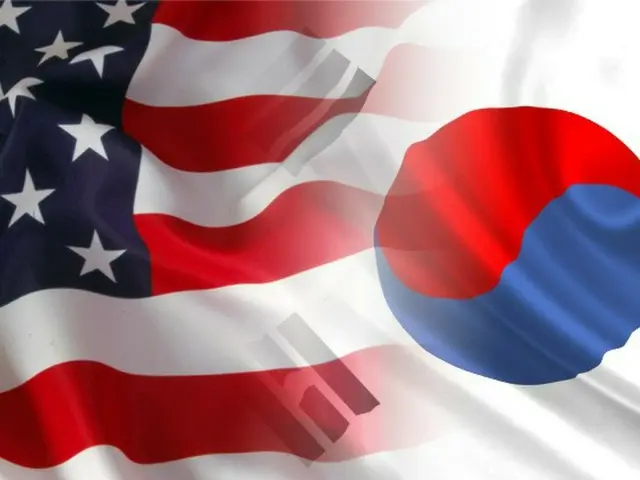However, there are growing concerns that Trump's return could destabilize the situation. The US presidential election was held on the 5th, and of the seven battleground states that will determine the outcome, Trump won in eastern Pennsylvania.
Trump won four states, including the southern states of North Carolina and Georgia, and quickly declared victory. Speaking to his supporters, Trump said, "This is an unprecedented political victory. I will be the 47th president, and I will be the first to claim this special honor.
"I'm grateful for the honor," he said. He then expressed his determination to "restore the greatest country in the world."
As soon as Trump's victory became certain, President Yoon posted a congratulatory message on social media on the night of the 6th.
"I offer my heartfelt congratulations. Under the strong leadership you have shown so far, the future of the ROK-U.S. alliance and America will be even brighter. I look forward to working even more closely together in the future," he wrote.
On the morning of the 7th, he spoke with Trump by phone. According to a statement from the South Korean presidential office, the meeting lasted 12 minutes and the two leaders agreed to meet in person soon.
He spoke about cooperation between the three countries of Japan, the United States and South Korea, saying, "I would like to work to ensure that the ROK-US alliance will lead to a close partnership across all areas, including security and the economy."
Trump responded, "I hope that the United States and South Korea will maintain a good cooperative relationship." The two also exchanged views and expressed concern about North Korea's repeated military provocations.
Regarding the US presidential election, the South Korean media has been discussing the impact on US-South Korea relations if Trump wins or if Ha Ri Su wins, even before the election day.
The report has focused on the impact of the election and has been published from various perspectives. With Trump's victory, many Korean media outlets have focused on the concerns that have led to the election.
In an editorial published on the 7th, the Chosun Ilbo said, "In his first term, Trump declared a trade war with China and
He has always applied economic pressure to countries and has sought security rewards from allies whenever possible. The second administration, which will soon be inaugurated, will likely be essentially the same."
"South Korea, which has been allied with the United States in both economic and security matters, is once again faced with an uncertain situation," the editorial said.
He said that due to the restructuring of the light chain, South Korea's largest export partner has changed from China to the United States, and that "if the second Trump administration in this situation again adopts protectionist trade practices, it will be a major threat to the South Korean economy."
The editorial also noted that Trump has called South Korea a "money machine" and has demanded an increase in defense spending, and said, "If he takes office, he will immediately
"If South Korea cannot provide a satisfactory answer to Trump, he is likely to threaten to reduce the size of U.S. forces in South Korea," he said.
Regarding the North Korea issue, Yonhap News said, "There are concerns that Trump will acknowledge that North Korea possesses nuclear weapons and abandon the goal of 'denuclearizing North Korea,' which has been pursued by the South Korea-U.S. alliance until now."
Experts have raised the risk that this could lead to a worst-case scenario in which only South Korea would be exposed to the North Korean nuclear threat, undermining not only South Korea-U.S. cooperation on North Korea but also the very foundations of the alliance.
Meanwhile, Yonhap reported, "Although there are risks, some analysts say there are also opportunities," and "The lifting of restrictions on the weight of missile warheads by the South Korean military and the use of solid fuel in rockets are also factors that have led to the
"Some believe that if the Trump administration can maintain amicable relations in his second term, such as lifting restrictions on trade, as was achieved during his first term, we can expect to see results in areas that South Korea desires."
The South Korean newspaper Hankyoreh reported, "The US foreign policy has also shifted from a 'values diplomacy' that aims to unite allies who share the same values to counter China and Russia, to an exclusive policy that pursues its own interests."
"The possibility of the US revising its diplomacy to the 'unilateralism' set forth in the 'Trump Risk' has increased," he said, adding, "The South Korean government is also strengthening communication to minimize the 'Trump risk,' but is also focusing on 'values' rather than 'values.'"
"We should seek a shift in direction to a more flexible diplomacy that puts 'national interests' at the forefront," he said. Meanwhile, President Yoon held a press conference on the 7th ahead of the halfway point of his five-year term and also mentioned the US presidential election.
Regarding cooperation among the three countries, Yoon expressed his view that it will continue to progress smoothly even after Trump took office. "The previous Trump administration built a cooperative relationship between companies in the three countries," he said.
"This has led to improved economic and security relations between the three countries and has helped us demonstrate joint leadership in the world," he said.
Regarding demands, "I can't say it's the same as the Biden administration, but we are making efforts in many areas to minimize the impact on South Korea and the damage to the national economy. We have been preparing measures against risks for some time now.
"We have been able to achieve this," he said.
2024/11/08 15:33 KST
Copyrights(C)wowkorea.jp 5

